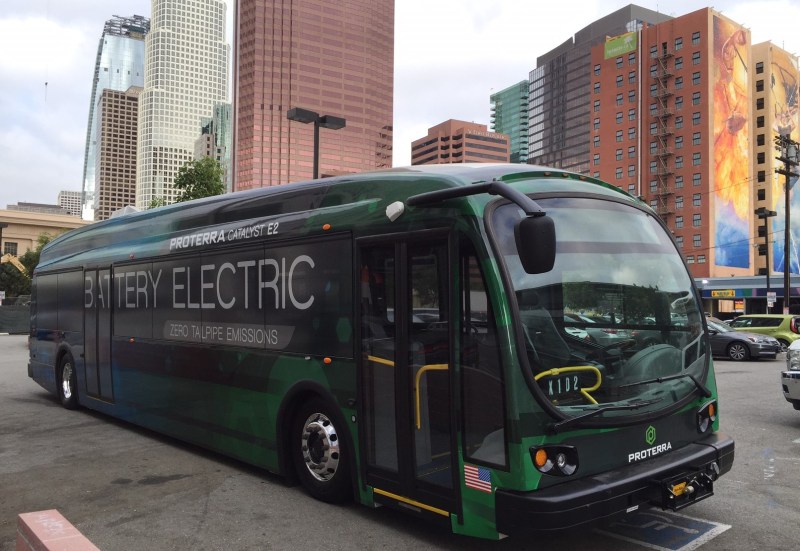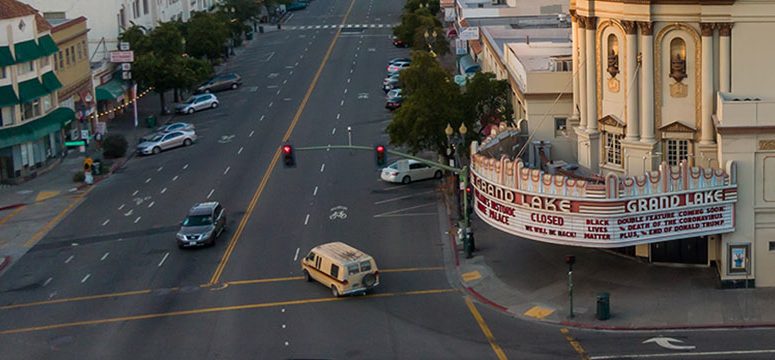Under pressure from environmentalists and others to end its reliance on compressed natural gas (CNG), Metro has presented its plan to gradually transition to a fully-electric bus fleet. While the end goal is laudable, the time-frame is no portrait in courage. Metro intends to proceed this month with a $200 million contract for 295 CNG buses, affirming the agency's primary reliance on CNG for the next half-dozen years.
Electric buses in use every day by municipal bus agencies, including Foothill Transit, LADOT, and Long Beach Transit. Even in affirming an ultimate transition, Metro staff's presentation elaborated on challenges to electrification, citing "known and unknown technology risks." Metro is requiring a 250-mile range for a full bus (1.4 load factor - seats full, plus 40 percent more riders standing) the 12-year vehicle life. In addition, funding needs to be allocated for buses, as well as charging equipment and related infrastructure.
Metro will run electric buses on the Orange and Silver Lines as an initial proving ground; these lines are planned to be fully electric by 2020 and 2021, respectively.
Metro's electric bus transition plan stands or falls on a 2019-2020 "technology assessment" before the agency actually begins to ramp up "ZEB" (Zero Emission Bus) acquisitions circa 2022. Then, the agency would transition its ~2500 bus fleet to all electric by 2030.
Metro's ZEB transition plan was presented at yesterday's meeting of the board's System Safety, Security and Operations Committee. The plan was presented as part of the contract approval process for electric buses for the Orange Line (more on this below), without any formal committee approval - merely a "receive and file" action. Metro's Chief Operations Officer James Gallagher stated, "we're committed," and characterized the plan as "a stake in the ground" and "what we're working on now." Boardmember Mike Bonin requested that the Metro board approve the zero-emission transition as an enshrined policy; this will not happen this month, but will come back to the board in the near future.
Overshadowing the electric bus transition plan were contentions over Metro's first significant electric bus contract. Before the board next week is a $60 million contract to purchase 35 60-foot-long articulated electric buses for the Orange Line. Metro staff is recommending that the agency contract with bus manufacturer New Flyer, a company with which Metro has a history of bus purchases. New Flyer is expected to manufacture buses at its plant in Ontario, in nearby San Bernardino county.
Electric bus manufacturer BYD is also vying for the contract, and contesting Metro staff's decision to go with New Flyer. BYD committed to manufacture buses at its plant in Lancaster. BYD representatives tout their product's longer range and better local jobs creation; Metro staff ranked New Flyer higher technically, based in part on the company's longer track record pointing to durability for the 12-year vehicle life.
Due to a lack of quorum of boardmembers without conflicts of interest, the initial articulated electric bus contract was not decided yesterday, but will go before the full board next week. In July, the board is expected to approve a second electric bus contract for 40-foot-long buses for the Silver Line pilot.
See additional coverage of Metro's bus electrification plan at KPCC.






